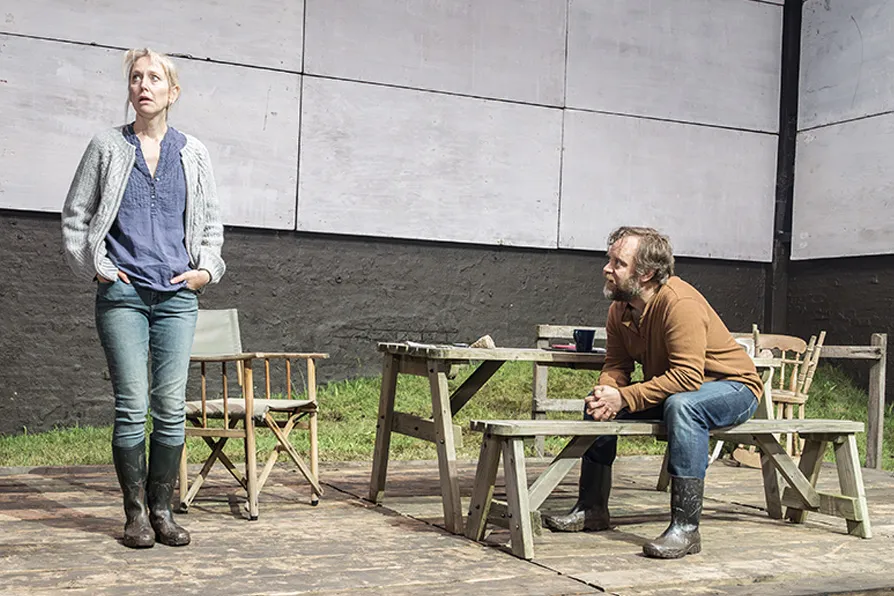TONY BURKE speaks to Gambian kora player SUNTOU SUSSO
MARY CONWAY admires a study of environmental idealism that aspires to Chekhov but is arrested in a deluge of middle-class opinion

 SUITABLY BOVINE: Hattie Morahan and Sam Troughton in Juniper Blood [Pic: Marc Brenner]
SUITABLY BOVINE: Hattie Morahan and Sam Troughton in Juniper Blood [Pic: Marc Brenner]
Juniper Blood
The Donmar
26 August 2025
★★★
ENVIRONMENTAL idealism – does it have traction in the modern, capitalist world? This is the question posed in Mike Bartlett’s new play which premieres with some panache at the Donmar.
Could this theme be more topical, or more desolate, as the human race faces despair over its own destructive culture, and the eco-warrior rises to the fore?
The story follows couple Lip and Ruth who have left the city to get back to nature and run a farm, or as Lip sees it to turn back time and live in harmony with the planet. In Act 1 they are joined by Ruth’s former stepdaughter, Milly, and her companion Femi and later by Tony, a local farmer. As conversations ensue, each character contributes an individual voice to the debate on ethical farming so that the action is arrested by a deluge of middle-class opinion covering wokeness and consumerism, equality and the global profit motive.
Interesting, but somehow we know it won’t end well.
Fully rounded characters are fundamental to a successful play. Here, the original couple seem somewhat formulaic and daftly naive, while the two young visitors are cyphers, lost in dogma and dialectic even as they act their socks off.
But the production glows. For a start, Bartlett writes with the wit and fluency already witnessed in his earlier works, shades of his acclaimed Albion, in particular, casting their spell. Meanwhile the play gathers momentum and in director James Macdonald’s skilful hands becomes aspirationally Chekhovian – in style, if not quite in substance.
Designer Ultz, who previously designed the rural, almost magical set for Jez Butterworths’s Jerusalem, immerses us almost physically in the English countryside with swathes of grass and tangible earth, rustic timber, sweet, soft, heavenly birdsong and subtle scents. A stroke of genius is Jo Joelson’s lighting that brings us clarity of air that seems to reach to the sky, untainted by all pollutants. No house lights intervene so audience and actors share the same, vivid light together for the whole show – an unusual, uplifting experience.
The acting too is superb, going far to disguise the sometimes ponderous action. Jonathan Slinger’s farmer Tony is by far the most interesting and authentic character who, one feels, should be the centre of the play. Instead, despite a top-notch Chekhovian performance, his story swells then subsides as it’s dismissed with the cruellest of barbs.
Sam Troughton is suitably bovine as the deeply depressed yet idealistic Lip, and Hattie Morahan as Ruth betrays her increasing doubt and shifting focus with every breath she takes. Terique Jarrett whose Femi must carry the mainstream, academic posturing of the play, delivers with a splendid lightness of touch and Nadia Parkes beautifully embodies youth and fierce wokeness in the vehement Milly.
But though the assembled talent – and Bartlett’s excellent choice of theme – raises the game, the constant debate is deadening to the drama.
This could be a great play. In the event it engages our emotions fitfully rather than fully and leaves us detached, if thoughtful.
Runs until October 4. Box Office: 020 3282 3808, donmarwarehouse.com










